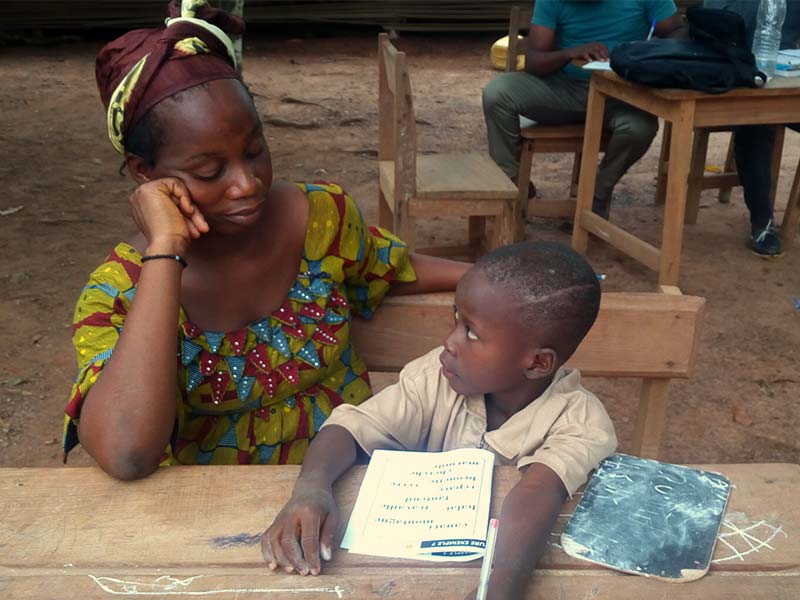The reasons behind child labour are multi-layered and complex. Likewise, solutions must be tailored to a variety of risk factors.
There is, however, a general consensus that school education is one of the most important components in the fight against child labour, since it offers children an alternative to work. Yet education only has the desired positive effect if it is of a high standard and provides children with genuine prospects for the future. We have been working with the Jacobs Foundation and members Nestlé and Cargill on the TRECC project, which aims to raise educational standards in Côte d’Ivoire. In 2016, we began setting up bridging classes to help at-risk children return to formal education. We also established literacy and numeracy classes for youth and adults and provided schooling support for children with learning difficulties. So far, 3,728 children and adults have benefited from these programmes.
In 2018, we started piloting new, innovative teaching and learning methods with the same partners and the Government of Côte d’Ivoire, with a view to incorporating successful approaches into the national education plan. PALEC is a project that aims to improve the quality of primary education by introducing play and technology into classrooms and providing a teaching model that is better tailored to individual learning needs. Initially developed in India by TIDE Learning, PALEC was adapted to the context of Côte d’Ivoire and is currently being trialled in five communities in the Daloa and Soubré departments.
Teaching at the Right Level (TaRL) is an evidence-backed educational approach that helps children develop basic reading and arithmetic skills. Data on learning shows that being enrolled in school is no guarantee of learning, especially if children miss key concepts during early childhood. With TaRL, they have a chance to catch up by working in groups differentiated by learning needs, rather than by age, and by dedicating time to basic skills rather than focusing solely on the curriculum. We are piloting the TaRL approach in our bridging classes.
